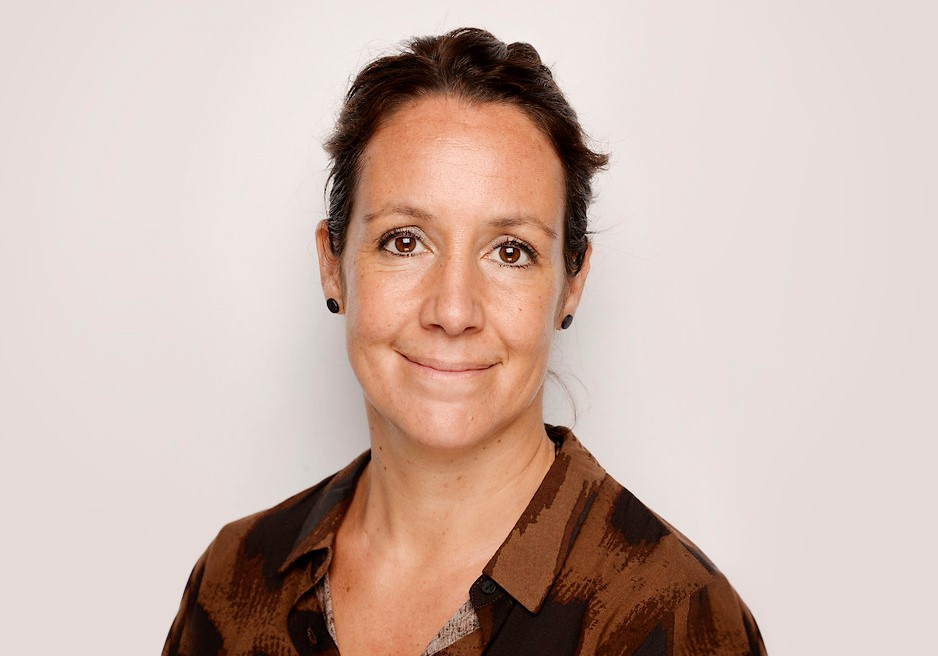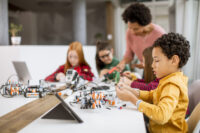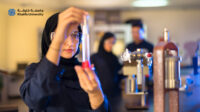Justine Sandoval-Stewart, Social Enterprise Coordinator, GEMS Wellington Academy – Al Khail discusses the significance of social enterprise in education to empower young learners to be change makers
Dubai, Oct 28, 2021: A relevant and contemporary education requires much more than passing exams and assessments; educators have a responsibility to prepare students for the future world of work and the hyper-connected societies in which we live. This is where social enterprises come into play.
Social enterprise has been a buzzword in the business arena for a while now but far less so in the classroom. Talking about its significance in education, Justine Sandoval-Stewart, Social Enterprise Coordinator, GEMS Wellington Academy – Al Khail says that students growing up in this ‘COVID era’ and beyond need to confidently thrive in a time of constant cultural exchange and interaction, and it is down to educators to arm young learners with the skills to become culturally sensitive, knowledgeable about the world and excellent communicators and international collaborators. .
She believes that these are skills that continually rank as the most in-demand by employers on globally collected data lists time and time again. “We must foster opportunities for our learners to develop these competencies, and one of the best ways to do this is through the introduction of a social enterprise curriculum,” says Stewart.
The Social Enterprise Coordinator emphasises that social enterprises are relatively a new concept in the UAE.
“Social enterprise lessons are not new to schools in countries such as the US and UK but here in the UAE, we are redefining how we approach what social enterprise encompasses to ensure its relevance in this region. We are adapting our syllabus to ensure we abide by the UAE laws relating to government, politics and charitable giving,” adds Stewart.
Talking about the curriculum of social enterprise, Stewart says that it includes elements of global citizenship, understanding the sense of belonging to a common humanity and the need for young people to become active, responsible citizens who realise the impact of their actions on the world around them.
Quoting UN’s Global Education First Initiative (2010), she says , “It is not enough for education to produce individuals who can read, write and count. Education must fully assume its central role in helping people to forge more just, peaceful, tolerant and inclusive societies.”
Talking about some of the methodologies adopted at her school, Stewart says, “Some of the more progressive methods we are currently using in our social enterprise programme includes peer upskilling, whereby pupils of different ages can collaborate to share their skills, mixing learning environments to make the best use of all our outstanding facilities outside the classroom and measuring success by contribution as opposed to testing content, and by being open to a range of outcomes within any task.
“We take a learning-through-action approach to social enterprise: classes are active and not confined to working at a desk in a classroom. In these classes, students participate in practical tasks that not only embed learning but also ensure they have actively contributed towards a shared goal.”
At GEMS Wellington Academy – Al Khail, students undertook interesting projects in the first term such as designing a ‘diversity wall’ to record individuals’ stories within the campus of how they came to be in the UAE and where they are from, and working on a ‘skill share’ model, whereby Year 9 students ran activities such as reading to FS children to improve literacy.
Stewart says that their learners also have the opportunity to shape the curriculum with their suggestions and proposals for new projects that will benefit the school or wider community.
Furthermore, students are given choices of projects to which they can contribute, as well as ownership of the role they carve out for themselves within that target. The aim is for a more holistic and ‘lived experience’ that is more beneficial for connecting learning and for developing empathy.
The school implemented the social enterprise pillar into the curriculum at the beginning of this academic year and in a short span of time has witnessed a real change in the social atmosphere of the school and in the confidence and self-assuredness of the students, especially amongst the teenagers.
“Over a four-week period, I saw the confidence of some students grow significantly as they started to recognise their own strengths and leadership skills while leading their younger peers. And the enjoyment was reciprocal, reflected in the excitement of the primary students each time the activities were run,” Stewart adds.








